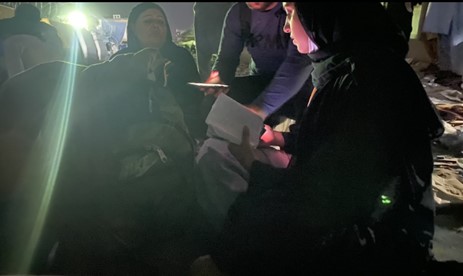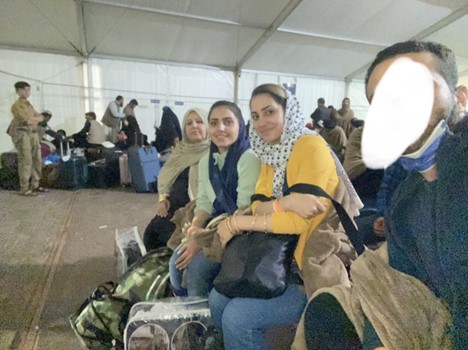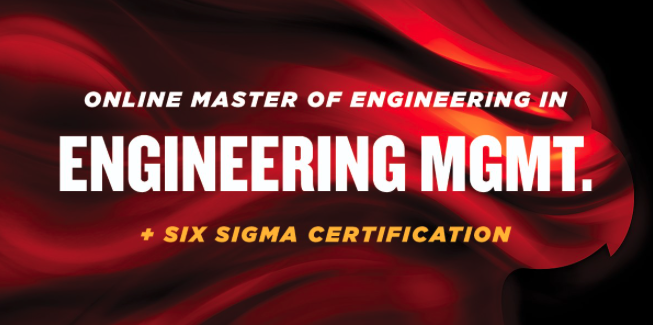We have a powerful student story to share with you today. Sodaba Rahmaty is a refugee, tornado survivor and a UofL online MBA (OMBA) student. Sodaba’s story is one of challenge and hardship, but also one of profound strength, courage, and the indomitable power of the human will. Learn more about Sodaba’s journey by reading our interview with her below.
UofL Online: Please tell us about yourself: who you are, where you are from, and anything else you would like to share.
SR: I am Sodaba Rahmaty, raised in Kabul, Afghanistan. Despite being aware of the limited opportunities for women in Afghanistan, I was determined to fight for gender equality and worked toward this cause. I started working with international organizations such as the United Nations of the world food program and finished my bachelor’s degree in finance.
I was very concerned for my safety while working in Afghanistan due to the ongoing threats of targeted killings, kidnappings, and suicide bombings. Every day, I lived with the uncertainty of whether I would be able to return home safely or not.
In August 2021, on the morning that Ashraf Ghani (former president of Afghanistan) left, and the Taliban took over Afghanistan, people were rushing and looking stressed. There was huge traffic congestion and a sense of confusion and uncertainty in the air. At that time, I was in contact with a couple of rescue organizations overseas and one of them listed us to evacuate.
With a heavy heart and a sense of hopelessness, I left my homeland behind in search of a safer place to live peacefully. The uncertainty of life in Afghanistan had become too overwhelming, and I knew that I needed to seek refuge elsewhere.
The Taliban were truly dreadful, and their presence was scary. Witnessing their brutality firsthand, including beating civilians, was truly disturbing. Additionally, experiencing the tragic events at the Afghanistan airport was deeply traumatic.
After a week-long journey from Kabul to Doha, Doha to Germany, and Germany to Virginia, our cases were assigned to Bowling Green, Kentucky, a place I had never heard of before. Despite this, I was content with the thought that at least our safety would be guaranteed there. Unfortunately, our journey was not without further difficulties. Just a week after we settled into a government-rented house, a tornado struck and damaged our home. Once again, we were forced to relocate and find a new place to stay temporarily.

Sodaba while getting into a military plane from Kabul airport heading to Doha.

Sodaba’s picture was taken at her office in Kabul AFG.

Sodaba in the Kabul airport.

This is a photo of a motor bomb explosion close to Sodaba’s home a few days before the Taliban took over Kabul.

This was during Sodaba’s interview with The New York Times.

This photo was taken while working in Afghanistan, during a training.

This was Sodaba’s street in Bowling Green, KY after the tornado happened. It was “unrecognizable.”

This is Sodaba at the base in Germany waiting for the flight to the USA.

A photo of Sodaba in the USA.
UofL Online: What prompted you to pursue an advanced degree?
SR: I have always been highly motivated to learn, and I strongly believe that pursuing an advanced degree will provide me with access to better resources and educational opportunities. This, in turn, will help me to advance both my career and personal growth. While being very new to driving, I drove 2 hours to meet with my recruiter at UofL, which can explain how passionate I am about it. As I believe the best investment is investing in yourself.
UofL Online: How did you hear about the UofL Online program/classes? How did you decide that UofL is right for you?
SR: I was fortunate enough to receive some valuable advice from a lady who serves as a board member of the International Center of Bowling Green. She recommended that I explore graduate programs at the University of Louisville, and I was pleasantly surprised to find that their programs aligned closely with my interests. I promptly emailed the graduate program director and was fortunate enough to receive a quick response.
UofL Online: What degree are you currently working towards?
SR: I am pursuing an MBA degree, focusing on financial analytics. This program combines my interest in finance and data analysis and will equip me with the skills and knowledge necessary to pursue a career in this field. I am excited to learn and grow through this program and to apply the knowledge and skills I gain to real-world scenarios.
UofL Online: What are your interests, dreams, passions, or goals? Do you have a dream job or career that you would like to pursue one day?
SR: My goal as an MBA student focusing on financial analytics is to become an independent and stable woman who strives to live a fulfilling life for herself and make a positive impact as a human being. With the skills and knowledge gained from this program, I aspire to be a leader in the financial industry and use financial analytics to create value for businesses and society at large. I also aim to prioritize equity and advocate for the voices of underrepresented groups, including refugees. Ultimately, I hope to leverage my education and experience to make meaningful contributions to the world around me and help those who are most in need of support. Additionally, I aspire to be an example of resilience and demonstrate to others that they can overcome any obstacle and achieve their goals with hard work and perseverance.
UofL Online: How has UofL’s online program helped you to advance toward your goals/dreams?
SR: Before starting school, I was lost and uncertain about which path to take. The University of Louisville’s commitment to providing a flexible and supportive learning experience is truly commendable. By offering the opportunity to balance my work and studies and providing access to online classes and resources to navigate any challenges, the university’s staff and professors are very responsive and most of the time I forget it is distance learning. On the other hand, I have classmates who check on me and are my study partners in some cases, I enjoy my learning journey.
The fact that I also have the option to take electives on campus is fantastic as it offers a more hands-on and engaging learning experience that complements the online coursework. The university’s dedication to ensuring that I have a clear plan and feel supported in my studies is a testament to its commitment to student success.
Feeling overwhelmed during my academic journey can be discouraging, but with the University of Louisville’s resources and support, I can feel confident and empowered to succeed. By taking advantage of the opportunities offered by the university, I can make the most of my academic experience and pave the way for a bright future.
UofL Online: What would you tell other students who are thinking about pursuing an online education, but are not completely ready to take the leap?
SR: I would advise others who are reluctant about pursuing OMBA that online education can offer many benefits, including flexibility, convenience, and the ability to learn at your own pace. However, being self-motivated, organized, and committed to staying on top of coursework and deadlines is important.
My experiences show other students the significance of having a concrete plan for one’s future with a UofL degree, as it can provide direction and motivation to overcome difficult times, the value of education, and the need to take advantage of available opportunities.
From all of us at UofL Online, thank you Sodaba for taking the time to share your story and experiences with is.













